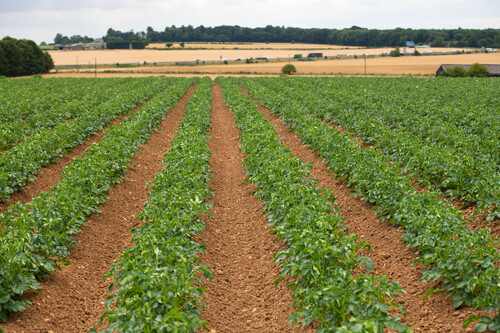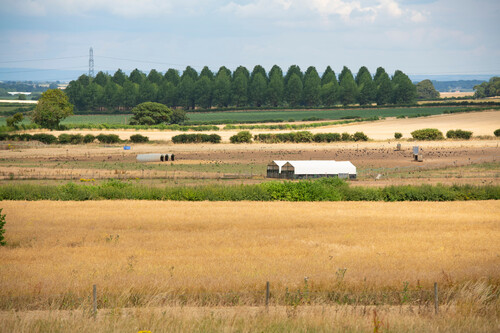
Quantifying the potential of different agricultural practices and interventions to sequester soil carbon (ie transfer CO2 from the atmosphere into the soil through plants, helping to improve its quality) and reduce greenhouse gas (GHG) emissions is key for reaching Paris Climate Agreement goals and the UK’s net zero target. This, alongside an appreciation of the multiple ecosystem benefits that increased soil carbon can deliver, has led to the establishment of carbon markets in some countries, whereby farmers are being paid to adopt practices and land use changes that increase the amount of carbon stored in their soil.
This market-place can be a potentially significant source of private sector investment to UK farms; currently estimated to be in the region of £200M – £750M per year for soil carbon sequestration. However, for this potential to be unlocked a ‘UK Farm and Soil Carbon Code’ is urgently needed that will give both farmers and investors’ confidence in the integrity of the carbon being bought and sold.
Therefore, a national consortium led by Sustainable Soils Alliance is developing a UK Farm Soil Carbon Code (UKFSCC). This will set out a range of formal protocols that allow farmers to measure, record and verify (MRV) changes in soil carbon stock and GHG emissions as a result of adopting specific farming practices. It will also establish agreement on principles such as permanence, saturation, additionality, and leakage. University of Leeds is part of the consortium and academics from the university are contributing via funding from iCASP.

This iCASP project will:-
- Determine the range of interventions currently being used by farmers via stakeholder consultation
- Use system-modelling methodologies to map the co-benefits and trade-offs of for a number of interventions
- Consolidate and synthesise the evidence base for carbon sequestration and reduction in GHG emissions for a range of in-field practices/interventions
- Review existing monitoring, reporting and verifying (MRV) protocols
- Review existing carbon calculators/models.
These outputs will contribute to the development of the UKFSCC which will enable farmers to achieve significant new income streams by engaging in carbon markets. They will also play a key role in incentivising farmers to adopt agricultural practices that can help the UK agricultural sector move towards achieving net zero emissions by 2050 and meet other environmental targets.
If farmers are to change their practices, better understanding of what practices are likely to work for different soil types and climate conditions is needed, in addition to their associated co-benefits and trade-offs for the environment and farm business. Farmers and other stakeholders will contribute to the evidence through online consultation and workshops.
Given the UK pledge to have net zero carbon emissions by 2050 and Defra’s introduction of the 25 Year Environment Plan (25YEP) and new Agriculture Bill, which aim to encourage sustainable farming practices, this project is extremely timely. The outputs of this project will provide urgently needed synthesis of the evidence base for climate-mitigation practices (including regenerative and agroecological practices), that can help Defra set up criteria and roles for the new Sustainable Farming Initiative (SFI), Local Nature Recovery and Landscape Recovery Environmental Land Management schemes (ELMS).
This project builds on previous iCASP projects, such as Public Goods – Soil Health that highlighted the impact of ten common agricultural practices on soil organic carbon stocks, CONSOLE which is exploring new types of agri-environmental contracts, INMY farm that created examples of guidance for farming networks on approaches to effective integrated nutrient management and NFM community of practice which brings together stakeholders working on different natural flood management projects across Yorkshire.
Project team:
Professor Pippa Chapman, Professor Guy Ziv, Dr Marcelo Galdos – University of Leeds; Professor Jonathan Leake – University of Sheffield; Professor Mark Reed – Scotland’s Rural Collage (SRUC) iCASP impact translation fellows: Dr Richard Grayson and Dr Lisette Phelan
Partners: Sustainable Soil Alliance (SSA), Forest Carbon, Good Thinking Inc, Agricarbon UK, Farming & Wildlife Advisory Group (FWAG), Agriculture and Horticulture Development Board (AHDB), Environment Agency, Soil Association
Duration: October 2021 – December 2022
Link: UK Farm & Soil Carbon Code
Outputs
A formal online launch event “Landscape to Carbonscape: the roadmap to a soil carbon marketplace”, held on 14 July 2021, organised by Soil Association and Sustainable Soil Alliance. A website with focus on the development of a UK Farm & Soil Carbon Code was launched.
UK Farm Soil Carbon Code Stakeholder Workshop, held 16 November 2021. The Farm Soil Carbon Code (UKFSCC) Consortium hosted the second in its series of workshops giving stakeholders the opportunity to find out more about the progress on the Code’s creation, to discuss some of the scientific and practical issues at stake and give feedback
